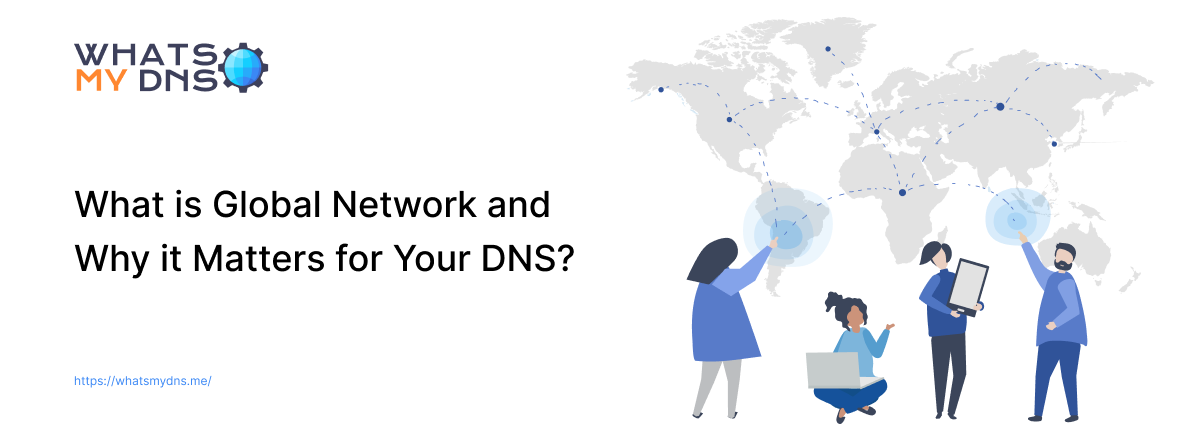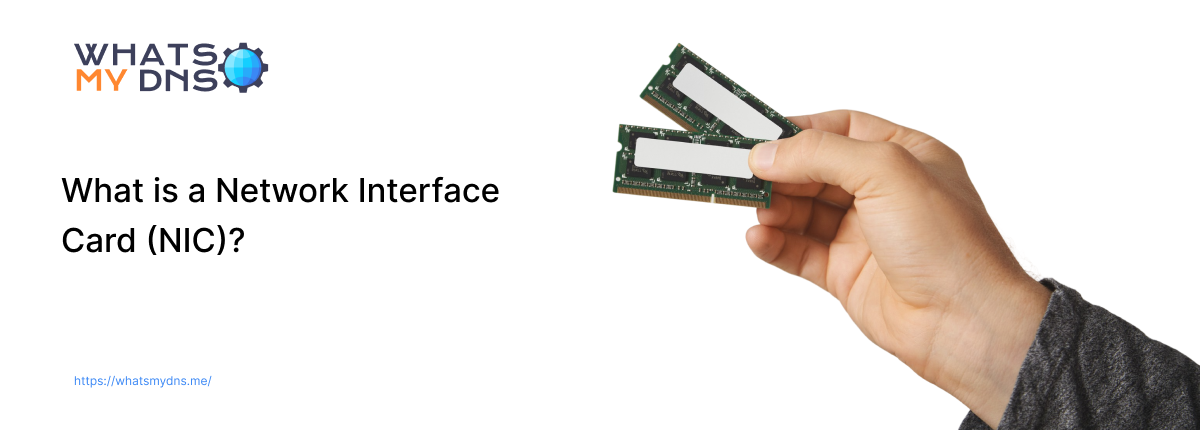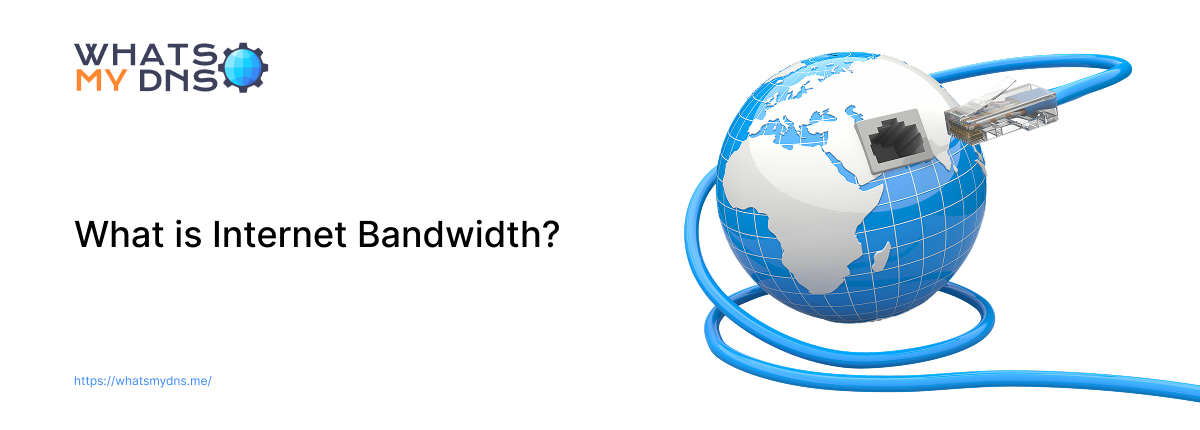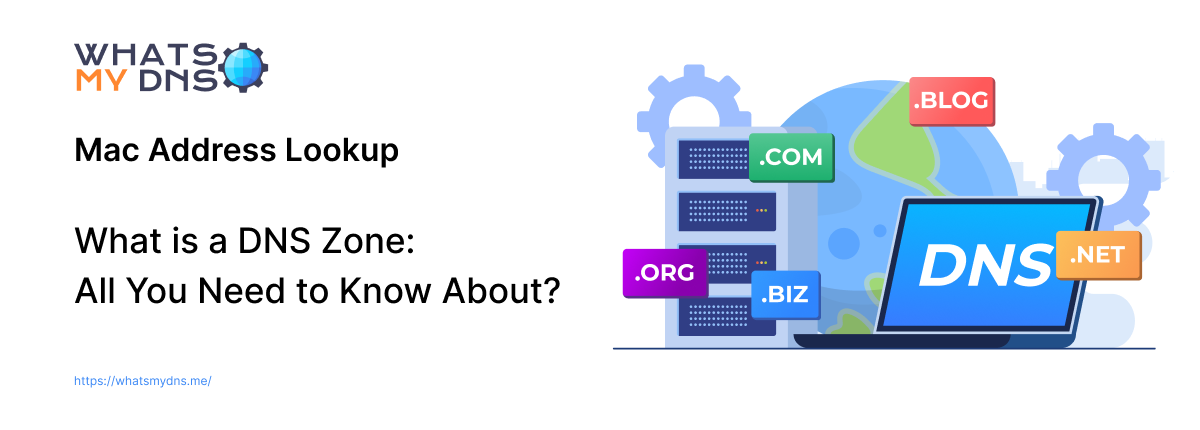What is Global Network and Why it Matters for Your DNS?

- 09 July 2025
If you own or manage a website, you might have come across two issues:
- The website loads slowly
- The website went down for users in some regions
Well, the culprits behind these issues are often missing or incorrect records in your DNS (Domain Name System) setup. By DNS the first thing that might come to mind is that they are used for resolving domains.
That is true, but that process also impacts how fast, reliable, and globally reachable your website is.
A Global Network solves this by distributing your domain's presence across multiple regions. They let users everywhere get instant, uninterrupted access.
In this blog post, you will explore what a Global Network is and why it matters for DNS solutions.
What Is a Global DNS Network?
Global DNS Network - It is a distributed system of authoritative DNS servers located across various geographical regions. This system is designed to ensure that a DNS query from a user is resolved as quickly as possible, regardless of the user's location.
How Do They Differ from Regional DNS Networks?
Single-region DNS setups typically have their servers located in one country, such as DNS servers in the UK or DNS servers in the USA.
What does this mean?
This means non-local users (i.e., people from outside those countries) who want to access the site can experience the following:
- High latency
- Lookup failures during peak loads
- Lower redundancy
On the other hand, when your website is set up using global DNS servers, it will distribute user queries to multiple regional servers. For example, if a user enters a query from Australia, they will likely receive responses from DNS servers located in Australia. This will result in faster lookups, better uptime, and a more seamless experience.
How Global DNS Works?
A global DNS works by distributing your domain's DNS servers across various locations worldwide. Not just on three or four servers but a wide range of servers covering the globe.
For your understanding, we have broken down the working of the global network below.
-
DNS Query Begins When a User Enters Your Domain
When a user enters a domain name into a browser, the device first runs to find the corresponding IP address. This process begins with the basic DNS query, which can be thought of as “Where can I find this website?”
-
DNS Resolver Looks for the Authoritative DNS Server
The user’s internet service provider and the local DNS resolver check if the IP address of the domain is already cached. If not, they will go up the DNS chain to find the authoritative DNS server for your domain.
-
Anycast Routing Finds the Closest DNS Server
Anycast is the technology that spreads the DNS records of your domain name across network servers around the world. Therefore, when the resolver attempts to connect to the authoritative DNS server associated with your domain name, it will be directed to the network server closest to the user's location.
As an example:
If a user enters a query for a domain name from Wellington, they will be directed to the closest DNS servers in New Zealand that are part of the global network.
If one DNS server goes offline due to an outage or a DDoS attack, Anycast will automatically route the traffic to the next nearest server in the network. This means no single point of failure. The site will stay online even during regional problems.
-
The Response is Sent Back to The User
Once the nearest DNS server provides the correct IP address for your domain, the user’s device can now contact your web server directly to load your site.
Why Do Global DNS Networks Matter?
Having a global DNS network for a website brings many benefits. Here’s why it matters:
-
Faster DNS Resolution
When users come to our site and are connected to the nearest global server, the DNS queries will resolve faster. This reduces DNS lookup times, ultimately resulting in your website loading faster (which is considered an important ranking factor as well).
-
High Availability and Uptime
The global network has your site's DNS records stored in multiple locations around the world. If a user enters a query and the nearest network server to their location is down, they will be automatically rerouted to the next closest server. This helps ensure 100% site uptime.
-
Resilience Against DNS-Based Attacks
DNS servers are often targets for DDoS attacks. In such attacks, thousands of malicious queries attempt to overwhelm the system.
Global network mitigates this risk by:
- Spreading traffic across multiple nodes using Anycast
- Absorbing and deflecting large volumes of attack traffic
How to Check If Your DNS is Global?
To check whether your domain is connected to a global network, consider running it through our DNS checker. Our tool enables you to perform real-time DNS propagation checks from multiple locations worldwide.
By entering your domain into a DNS checker, you can instantly see:
- Which DNS servers are responding
- What IP address is being resolved in different countries
- Whether your records have fully propagated
If you see DNS responses from a particular region, then your domain is probably connected to a local network server. However, if you observe DNS responses being resolved at different locations, it means your domain is connected to a global network.
Bottom Line
A global DNS network helps ensure that your website remains accessible, fast, and reliable for users worldwide. Having DNS servers spread across the world removes delays, reduces risk, and delivers a better experience. If you’re unsure about your current setup, run a DNS check because global reach starts at the DNS level.
Related Blogs

What is a Network Interface Card (NIC) | Components, Types, & Working Explained
Learn what a Network Interface Card (NIC) is, how it works, and why it matters - explained in simple words for everyone.
- 05 Jun 2025

What is Internet Bandwidth and How it is Measured
Understand what internet bandwidth really means, why it matters, and how it's measured to ensure a smooth online experience.
- 02 Jul 2025

What is a DNS Zone: All You Need to Know About?
DNS Zones Made Easy — Understand What Keeps Your Domain Running
- 26 May 2025